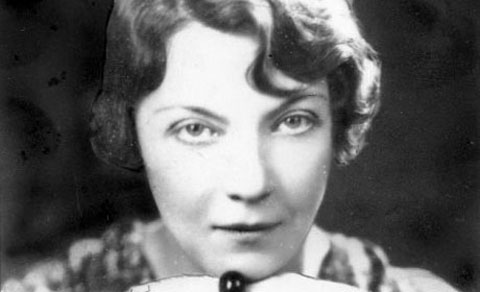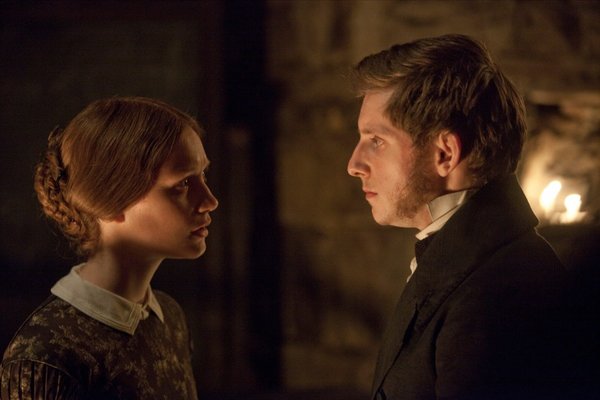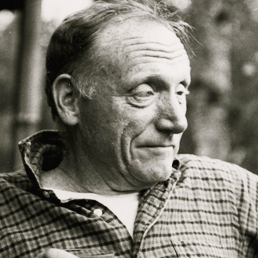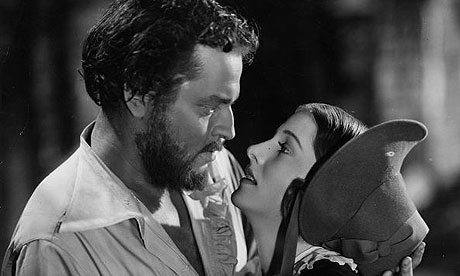(This is the seventh entry in the The Modern Library Reading Challenge, an ambitious project to read the entire Modern Library from #100 to #1. Previous entry: Under the Net)
 In Geoff Dyer’s Otherwise Known as the Human Condition, there’s an essay in which Dyer describes his reading habits. He writes about a late stage wade into Jean Rhys’s Wide Sargasso Sea. “I could make neither head nor tail of the first part,” notes Dyer. “[B]ut, since the book was short and the end in sight almost from the first page, I finished it and realized that it was indeed the masterpiece everyone had claimed.” It’s safe to say that this knowingly superficial take, coming from a man who has offered similarly ridiculous thoughts in relation to David Foster Wallace, is woefully insufficient, even if it does come from a posturing Englishman. To adjust Dyer’s own metaphor into a framework which renders the length of a book extraneous, I think that judging any author against the promise and the propinquity of the last page is the cry of a miscreant, one either disinterested in literature or, as Scott Esposito has recently suggested, trolling so that he can move more units.
In Geoff Dyer’s Otherwise Known as the Human Condition, there’s an essay in which Dyer describes his reading habits. He writes about a late stage wade into Jean Rhys’s Wide Sargasso Sea. “I could make neither head nor tail of the first part,” notes Dyer. “[B]ut, since the book was short and the end in sight almost from the first page, I finished it and realized that it was indeed the masterpiece everyone had claimed.” It’s safe to say that this knowingly superficial take, coming from a man who has offered similarly ridiculous thoughts in relation to David Foster Wallace, is woefully insufficient, even if it does come from a posturing Englishman. To adjust Dyer’s own metaphor into a framework which renders the length of a book extraneous, I think that judging any author against the promise and the propinquity of the last page is the cry of a miscreant, one either disinterested in literature or, as Scott Esposito has recently suggested, trolling so that he can move more units.
As someone who has recently confessed his own blind spots and “allergies” in relation to Jane Eyre (along with a willingness to confront this aesthetic resistance), I feel it incumbent to report that Jean Rhys’s masterpiece placed me in such a great trance that approaching it like some notch to be etched on my belt or miscomprehending the first part never entered my mind. If anything, I wished to comprehend it more. It could very well be that the silly ambition of this project has forced me to become obsessed with some of the individual volumes. But when I read Wide Sargasso Sea a second time, I had to stop myself from reading it a third time.
By contrast, when I read Jane Eyre in January, I felt no such impulse. I wanted to scream very much in the manner of Bertha, throw the book against the wall, and then try to understand why Charlotte Bronte drove me crazy while perfectly amicable and intelligent people continued to enjoy Jane Eyre (and its overwrought cinematic adaptations). It will be at least ten years before I attempt to read Jane Eyre again. Why should this be? I suggested in my Jane Eyre essay that Rochester was my entry point, yet Rochester is an absolute scoundrel in Wide Sargasso Sea. In considering both books, I find myself pitying him in Jane Eyre while loathing him in Wide Sargasso Sea. (It isn’t enough for Rochester to pluck her surname; he must change her first name too. We know this in both books, but the gesture means something different in Wide Sargasso Sea, perhaps because Rochester is there to answer, and often not answer, for his actions.) Yet strangely enough, I can compartmentalize these two feelings, perhaps because Rhys’s book stands as firmly on its own two feet as Bronte’s. Rhys has the benefit of being complementary, but I somehow came away feeling that Jane Eyre was the volume inspired from this one. Bronte’s line of Rochester making Jane Eyre “love him without looking at me” is expanded upon in exceptionally cruel and interesting ways by Rhys. “Look at me,” says the scheming Christophine to Antoinette. “Look in my eyes.” Did Rochester pick up such obeah from Granbois? Was such magic enough for Jane to hear that of Rochester from afar, speaking “in pain and woe, wildly eerily, urgently”? Or were all such women he encountered susceptible to the look? (An idea for a grad student: Rochester as a 19th century Zoolander?)
Unlike Jane Eyre, I found Antoinette is an immensely sympathetic character. I truly believed that she could run away from Rochester, yet I couldn’t believe this of Janet. Antoinette not only suffers terrible abuses (a girl swipes her only dress at a bathing pool for mere pennies, her mother disowns her, she attempts to love her husband and he takes her money), but, if we are to believe her perspective, she is demeaned by nearly every side character. She is called “white nigger,” “white cockroach,” and beke. She is presumed mad by lineage, with her new hubby Rochester one of the biggest boosters of this hysterical theory (on flimsy evidence too). Yet isn’t it a bit mad for Rochester, even if he is suffering from a fever, to echo all of Christophine’s words when he is being rightfully condemned? To call this a double standard is an understatement. Unlike Jane Eyre, Wide Sargasso Sea gives us multiple perspectives (the never named Rochester, Antoinette, and the transformed “Bertha”) with which to assess the action. Yet the additional vantage points creates something oblique and tantalizingly incomplete.
But even though this book leaves so many questions, there’s a good deal of potent imagery, much of it startlingly specific. Consider the family parrot, Coco, who tries and escape a fire — the conflagration a case of vengeful arson after Antoinette’s new stepfather (one Mr. Mason) says some impetuous words easily overheard — to the dilapidated home in Coulibri in the book’s first part. Coco’s wings have been clipped by Mr. Mason after he “grew very bad tempered,” even though he sits quietly on Antoinette’s mother’s shoulder. Coco’s death is clearly a sign of things to come:
I opened my eyes, everybody was looking up and pointing at Coco on the glacis railings with his feathers alight. He made an effort to fly down but his clipped wings failed him and he fell screeching. He was all on fire.
We know, of course, that Antoinette will be doing a good deal of screeching herself as Bertha. Coco is hardly the only bird in the book. Later, when Antoinette leads Rochester down a very bad road pushing past the boundary of Granbois, Rochester hears a bird whistling “a long sad note.” He asks, “What bird is that?” But Antoinette is too far ahead to hear his question. Later, Rochester encounters a moth so large “that I thought it was a bird.” Does Rochester see birds (or women he can crush) in every half-feeling being? Once Antoinette is past the point of no return, Rochester has this to offer:
I will listen to the mountain bird. Oh, a heartstopper is the solitaire’s one note — high, sweet, lonely, magic. You hold your breath to listen…No…Gone. What was I to say to her?
That this comes after Antoinette has tried to explain her personal history to Rochester is especially stinging. “You have no right to ask questions about my mother and then refuse to listen,” says Antoinette during one key moment, after Rochester has met with Daniel Cosway about some adulterated family business that may or may not be real. What is Rochester’s reply? “Of course I will listen, of course we can talk now, if that’s what you wish.” Rochester tells us that he listens to Christophine. But he only listens in self-interest, only because what she is talking to Antoinette about is “dangerous.” Long after that, Rochester declares, “Sing your songs, Rupert the Rine, but I’ll not listen, though they tell me you’ve a sweet voice.” It becomes quite clear that Rochester listens only as a scarcely practiced marital obligation. But given the fact that he’s boffing the servant Amelie, he’s hardly a man of duty. (Not especially a gentleman on the subject of getting it on with the missus, Rochester notes, “Very soon she was as eager for what’s called loving as I was — more lost and drowned afterwards.”) Alas, as Antoinette learns from Christophine, Rochester has English law on his side. And if that means Rochester sleeping in his dressing room, so be it. Having fleeced the pittance left, Rochester’s view of Antoinette is somewhat akin to the high-pitched voice opening up Swizz Beatz’s “Money in the Bank”: “She ain’t got no money in the bank / She be walking round acting all stank.”
Of course, Rhys had a great deal of time to think about Antoinette. Wide Sargasso Sea was the book she offered to the world after nearly thirty years of anonymity. As it turns out, she wasn’t entirely slacking off during that time. In a letter to her daughter on March 9, 1949 (which I found in Lilian Pizzichini’s biography, The Blue Hour), Rhys was to write:
If I could earn some shekels I’d fly from damp and bloody Beckenham and finish my book. Oh God if I could finish it before I peg out or really turn into some fungus or other!
I think of calling it The First Mrs. Rochester with profound apologies to Charlotte Bronte and a deep curtsey too.
But I suppose that won’t do. (I’m supposing you’ve studied Jane Eyre like a good girl).
It really haunts me that I can’t finish it though.
The above letter counteracts the familiar claim that Rhys took nine years to write Wide Sargasso Sea and that Rhys was commissioned to write the book in 1957. A crass numbers man might do the math. If Rhys was thinking about Wide Sargasso Sea for 17 years, and the result is a 170 page volume, then that’s ten pages a year. How much of the book did Rhys write in her head?
Some early critics of the book expressed their resentment at having to know a good deal of Jane Eyre before “knowing” Wide Sargasso Sea. A critic in the Sunday Times, knowing nothing of Rhys being born in Dominica, hoped that Rhys would return to “an aspect of life she has observed and experienced rather than by annotating” Bronte. Such variegated views tend to undercut the distinct possibility that with great cogitation comes great literature.
Next Up: John Fowles’s The Magus!


 I felt bad about not reading Robert Penn Warren. (Years later, I read the book in its entirety.) I also felt bad when I learned that the two students, whom I thought my friends, ridiculed me to another friend, figuring that I had to be a stupid son of a bitch for not reading Warren. (This third friend defended me, in part because he was also not quite in their class bracket and had some tangible understanding of what I was going through. Vice versa. We’re still friends to this very day. Old soldiers who fought many wars together.) And so I decided to prove to myself that I could read a big book that wasn’t science fiction or fantasy. I plucked a copy of Jane Eyre from a box in another classroom and I brought it home. (I would later do the same thing with George Orwell’s 1984 and Charles Dickens’s A Tale of Two Cities, both of which I was not required to read but did.)
I felt bad about not reading Robert Penn Warren. (Years later, I read the book in its entirety.) I also felt bad when I learned that the two students, whom I thought my friends, ridiculed me to another friend, figuring that I had to be a stupid son of a bitch for not reading Warren. (This third friend defended me, in part because he was also not quite in their class bracket and had some tangible understanding of what I was going through. Vice versa. We’re still friends to this very day. Old soldiers who fought many wars together.) And so I decided to prove to myself that I could read a big book that wasn’t science fiction or fantasy. I plucked a copy of Jane Eyre from a box in another classroom and I brought it home. (I would later do the same thing with George Orwell’s 1984 and Charles Dickens’s A Tale of Two Cities, both of which I was not required to read but did.) 